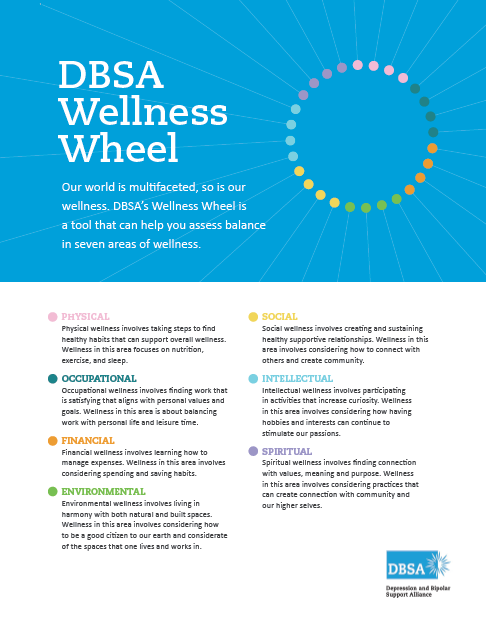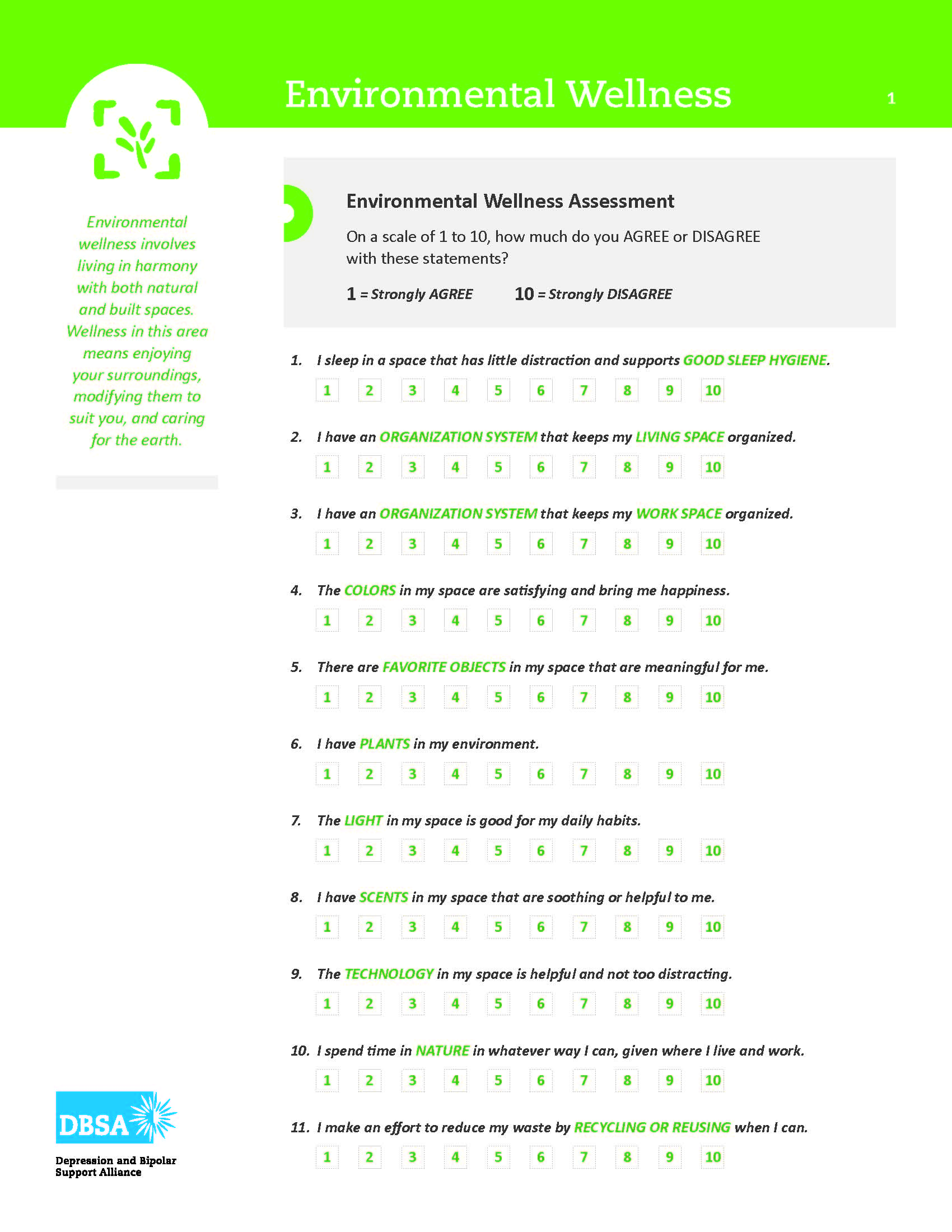Environmental wellness encompasses several different areas. It involves how you interact with nature and with physical spaces such as home and work. It includes recognizing the benefits of our natural and built spaces and minimizing the impact of their deficits – and ways you can respect the spaces around you in return.
How your natural environment helps your mind and body
Research shows that time spent among the elements of nature – air, water, sunlight, plants, and wildlife – helps nurture our minds and bodies. Whether your time outdoors involves a brisk walk down a city street or putting your toes in the sand at the beach, you will see benefits.
Spending time outside increases your exposure to natural sunlight, which can elevate your energy and moods. A cool breeze on your face or reading a book in your backyard can all provide opportunities for your body to relax and your mind to unwind.
Time spent in natural surroundings does not replace treatment you are already receiving for depression or bipolar disorder. But it can give you an extra boost, providing relaxation and the feeling of being connected to something larger than yourself.
Here are some ways you can enjoy time outside while protecting the natural environment:
- Bike to work or the store.
- Walk to the train instead of driving.
- Plant a tree or garden.
- Participate in a park cleanup day.
Built environments and your wellness
Built environments are the human-made places where we live, work, and socialize. Ideally, you will have some control over your home’s setup and design so that you can create spaces to recharge and relax.
There may be parts of your home environment that you can’t control. For example, you might share walls with neighbors, live with a roommate, or live close to a school, factory, business or transit station that creates outdoor noise. Even so, there are always ways to make your space as comfortable as possible to best suit your needs.
- Decorate with your favorite colors.
- Add a natural-light desk lamp.
- Pick a few plants to freshen the air.
- Introduce some cozy throw pillows or a weighted blanket for a soothing place to rest.
- Use curtains, blinds or fabric to control light and sound entering your space.
- Hang pictures or art that make you happy.
- Use an air diffuser to add pleasant scents to your home.
- Add a white-noise machine to mask neighborhood sounds.
The amount of stimulation or quiet you need from your surroundings may vary. If you are feeling depressed, you may seek out more energy. If your mood is elevated, you may look for more tranquility.
Unless you work at home, your work space may be organized by your employer. But many organizations allow you to personalize your work area. As with home, see what you can do to modify lighting, add comfort, and enjoy breaks throughout your workday. Ask for the equipment you need to work safely and comfortably. If you need specific support, such as an ergonomic keyboard, a floor pad or back support, talk with your supervisor.
Sources of stress in your environment
There are a number of ways that your surroundings can create stress. Environmental wellness means minimizing the negative effects that these factors have on your wellbeing.
The hidden (and not-so-hidden) stress factors you face
Noise, pollution, and traffic are all examples of things that can be stressful, particularly if you live in an urban area. These can include unexpected noises like sirens in the middle of the night, or daily hassles like an air conditioner that hums loudly or a busy intersection during your commute.
If you live in a suburban or rural area, you may deal with other kinds of noise or air pollution. Sounds, scents and disturbances coming from road traffic, trains, nearby businesses, farms and factories or the activities of your neighbors may affect you.
How to ease the effects of environmental stress
Chronic stress wears you down. It can affect your body’s immune system and worsen feelings of depression or anxiety. If there is something affecting your mindset, productivity, sleep, or functioning, you will need to find ways to work around it.
Not everything is within your control – for example, that busy intersection you’re forced to cross on the way to work – but there may be a way to minimize the stress it creates. Here are ways to think about environmental stressors and ways to cope with them.
- Would going to work at different times reduce the traffic you face?
- Would a white noise sound machine ease sleep disruption?
- Would curtains or window blinds block outdoor light that keeps you awake?
- Would playing podcasts or music – with or without headphones – help screen out noise?
It is also worthwhile to think about sleep hygiene, which may prompt you to remove TVs and other screens from spaces where you sleep. Link to physical wellness page
Stress from work
If you work at home, be mindful of the stress this situation can create. Try to arrange separate spaces just for work and just for relaxing for a healthy boundary between your working life and your personal time.
If you work in an office, factory, school, health care center, or other environment, pay attention to what affects your productivity or makes you feel irritable. If conversations get too loud or equipment sounds make you feel tense, consider using noise-cancelling headphones or soft music. If you are overwhelmed by too many meetings, consider taking a short walk indoors or going outside for a bit to refresh your spirits.
Maintaining your space when you feel depressed
Keeping built spaces, especially your home, clean and relatively organized can give you a boost during times when you feel vulnerable. Here’s a closer look at how this works.
Keeping order in times of vulnerability
As you already know, depression can decrease energy levels. When it feels like a major effort to shower or fix yourself a meal, cleaning may be low on the task list. Keeping your home reasonably clean on an ongoing basis will help you when you need to devote more energy to self-care and rest. This can also ease the guilt you may feel when you’re not at your best. Use the good energy you feel during positive times to set up routines that will help when you’re depressed. Set small and specific goals so you can give yourself credit for your progress.
Welcoming people into your space without worry or guilt
Have you experienced a time when you wanted to invite someone over, but felt overwhelmed by what it would take to get your home ready? Or canceled a date with someone, because you didn’t have the energy to tidy up? Keeping up with small daily tasks that keep your house clean can make it easier to welcome others into your home, which supports your social wellness.












